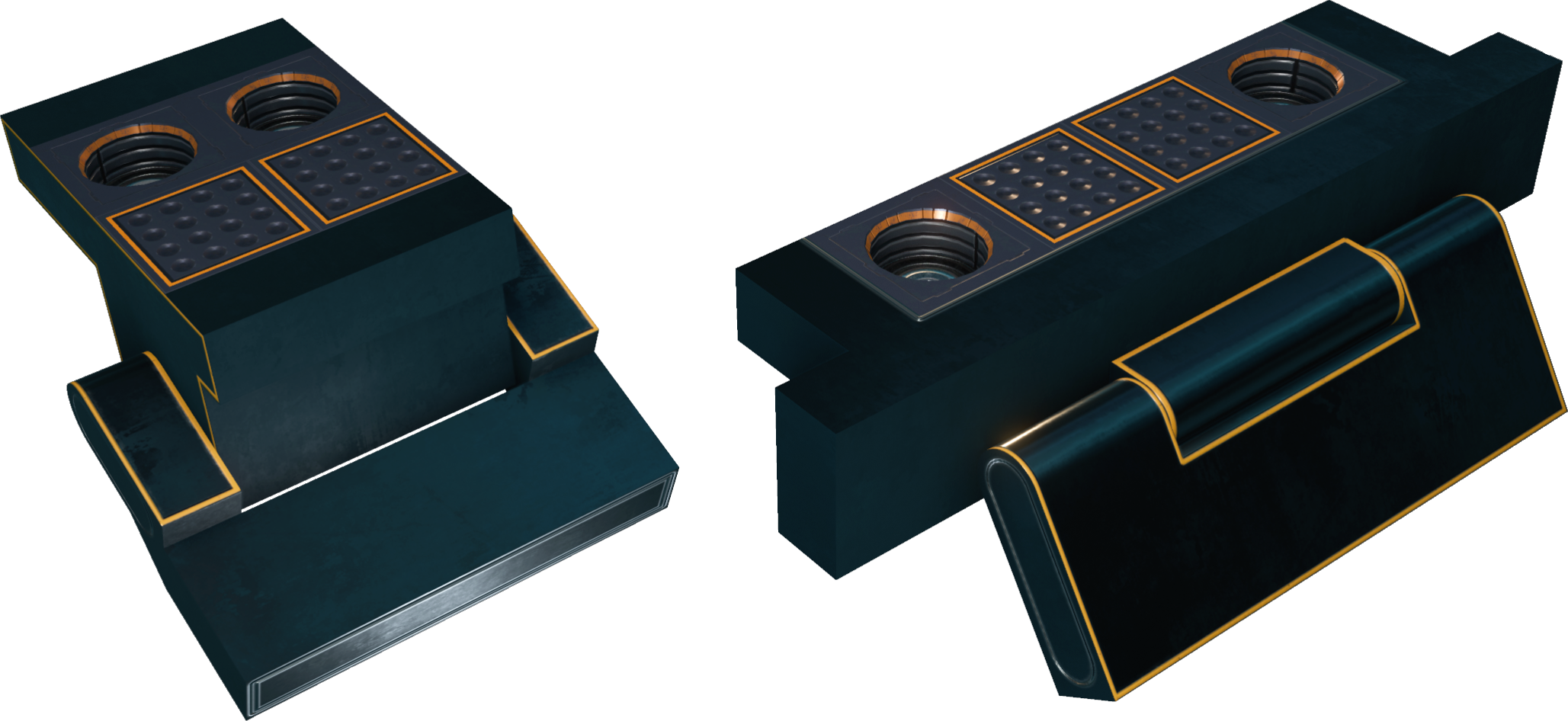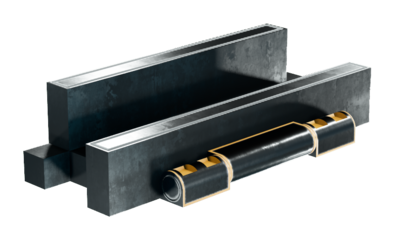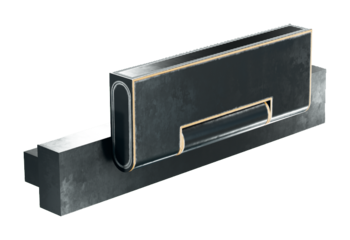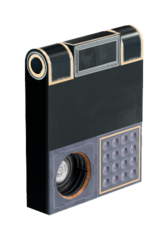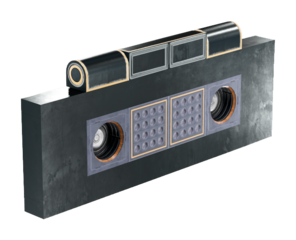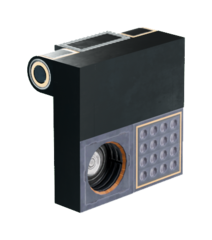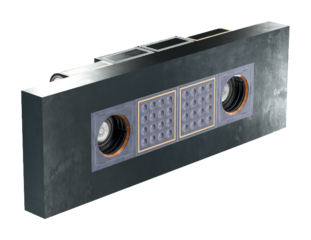Difference between revisions of "Hinges"
Jump to navigation
Jump to search
m |
m |
||
| Line 74: | Line 74: | ||
The button can be then used to remotely open or close the hinge. | The button can be then used to remotely open or close the hinge. | ||
<!-- Hidden. These hinges may be added in the future, but currently are not. | <!-- Hidden. These hinges may be added in the future, but currently are not. | ||
There are currently 16 different hinges and they all share the same operation being either a fold/unfold or a sliding hinge. The majority of the variety is taken up by fold/unfolding hinges. A major issue with hinges when making ships is that most of them do not pass on electricity or signals. Hinges are also said to be weak to pressure, so one shouldn't mount them to thrusters. | There are currently 16 different hinges and they all share the same operation being either a fold/unfold or a sliding hinge. The majority of the variety is taken up by fold/unfolding hinges. A major issue with hinges when making ships is that most of them do not pass on electricity or signals. Hinges are also said to be weak to pressure, so one shouldn't mount them to thrusters. --> | ||
== Gallery == | == Gallery == | ||
Revision as of 09:15, 3 June 2021
Hinges
Type Utility machinery
Function Joint motor
Availability Luxury Items
Size
- 48×144×36 cm (C-profile)
- 24×144×36 cm (L-profile)
- 48×48×12 cm (A1)
- 48×144×12 cm (A2)
- 48×48×12 cm (B1)
- 48×144×12 cm (B2)
Mass
- 1,419 kg (C-profile)
- 1,148 kg (L-profile)
- 331 kg (A1)
- 940 kg (A2)
- 331 kg (B1)
- 940 kg (B2)
Volume
- 142.7 kv (C-profile)
- 115.3 kv (L-profile)
- 33.3 kv (A1)
- 94.4 kv (A2)
- 33.3 kv (B1)
- 94.4 kv (B2)
Corrosion resistance
- 400 (C-profile, L-profile)
- 425 (A1, B1)
- 435 (A2, B2)
Input / Output
Electric input ~5 e/s
Sockets
- 2 (C-profile, L-profile, A2, B2)
- 1 (A1, B1)
Modular interfaces
- 2 (C-profile, L-profile, A2, B2)
- 1 (A1, B1)
Composition (C-profile, L-profile)
Composition (A1, B1)
Composition (A2, B2)
Hinges are devices used for creating turning, sliding and opening mechanisms such as doors, hatches and sliding doors.
Basic information
Hinges are commonly interacted with by controlling it via a button or YOLOL script.
A hinge's DoorOpenState field can be connected to a button.
The button can be then used to remotely open or close the hinge.
Gallery
Device fields
| YOLOL field | Description | Range |
|---|---|---|
| DoorOpenState | Input field for requested door state. 0 is closed, 1 is fully open. | [0,1] |
| DoorCurrentState | Reports the current position of the door, on the same scale as DoorOpenState | [0,1] |
| EndAngle / EndPosition | The rotation/position the joint should be at when DoorOpenState is 1. Is measured in percents(%) relative to the maximum possible open state for prismatic joints, and degrees in hinge joints. | |
| StartAngle / StartPosition | The rotation/position the joint should be at when DoorOpenState is 0. Is measured in percents(%) relative to the maximum possible open state for prismatic joints, and degrees in hinge joints. | |
| TargetVelocity | The maximum velocity the joint will reach. Different joint devices have different velocity limits, and might not be able to reach the configured velocity. |
To learn more about how to use fields, consult these wiki pages:
